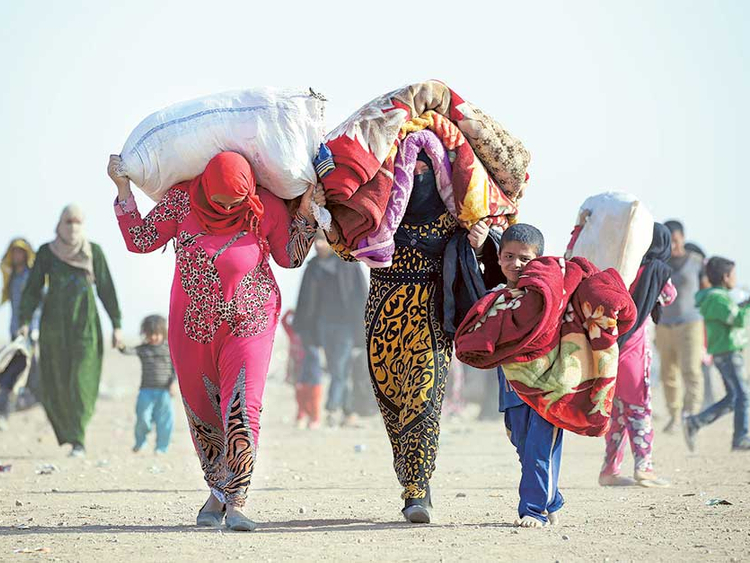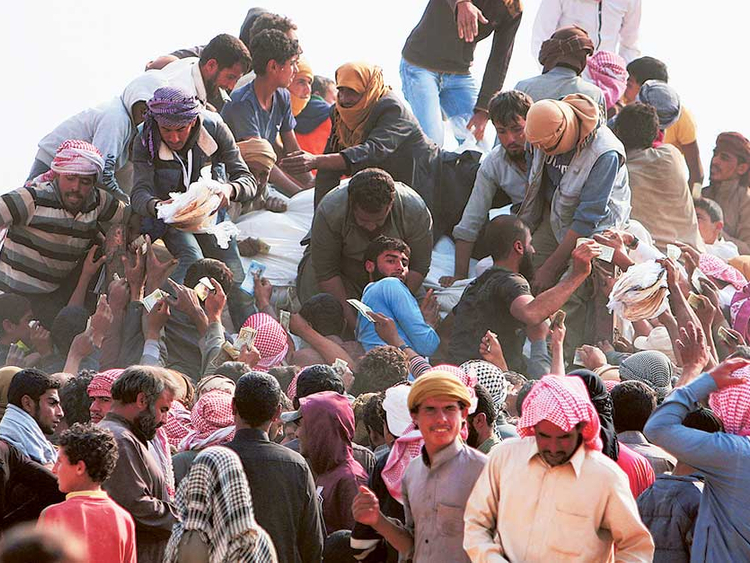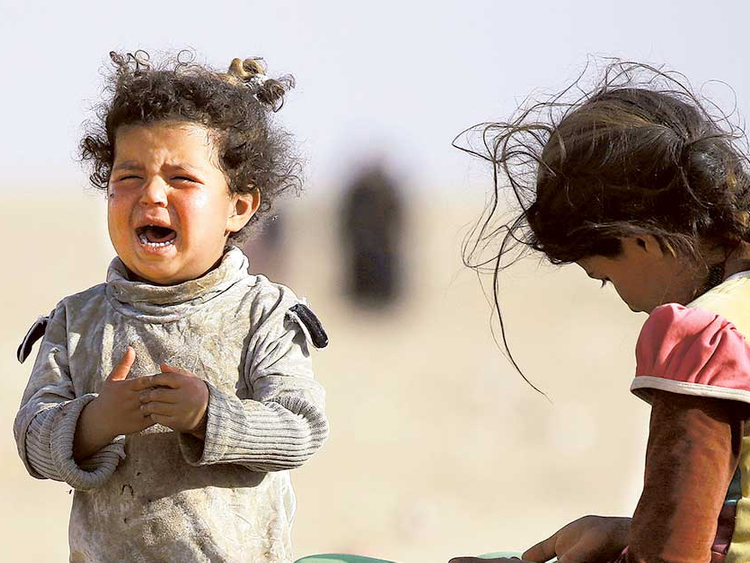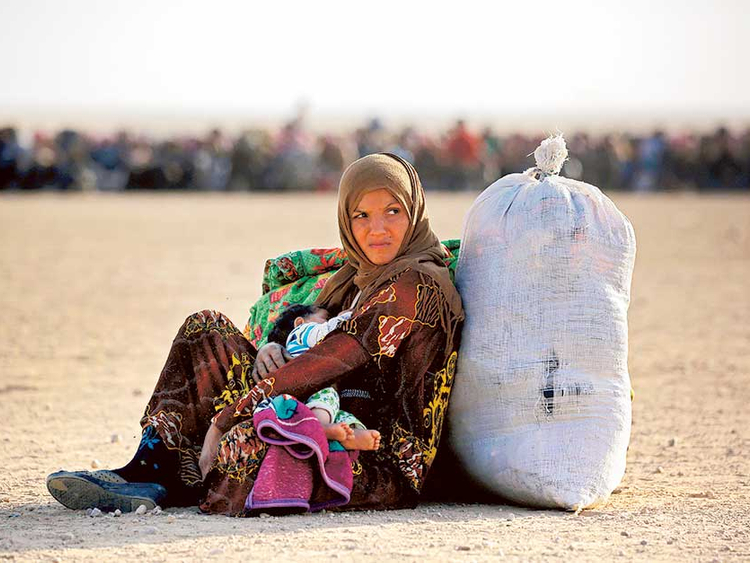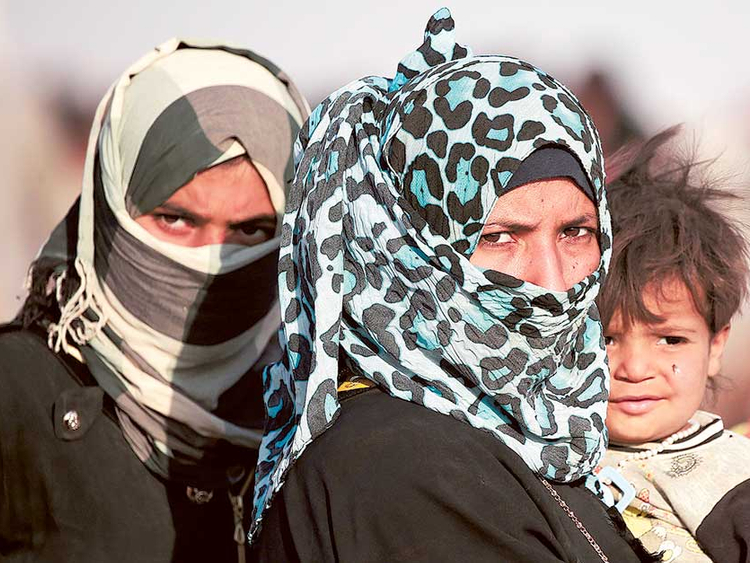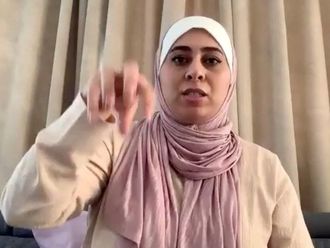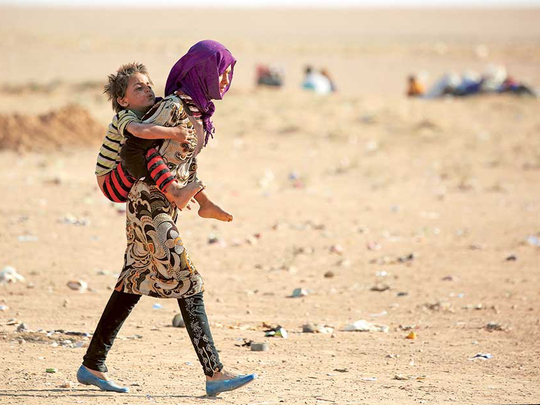
Jadaa, Iraq - The first thing Musar Abd did when he escaped Daesh this week was grab a razor.
“I shaved this morning,” he said, smiling and pointing to his cheeks, smooth for the first time since Daesh militants began requiring long beards two years ago. “I became a young man again.”
When Iraqi federal policemen taking part in the offensive to reclaim Mosul from the terrorist group approached his village, Abd, 41, was elated to see them coming.
For Abd, escape was an imperative - he had informed to the Iraqi police about conditions in the city, he said. “All of the world knows what life was like under Daesh,” he said.
But there are 1 million or more other civilians still in the city, and as they begin taking up the decision of whether to flee or stay, they face increasing hazards. Aid groups and international agencies are racing to prepare the possibility that the trickle of civilians fleeing Mosul, like Abd, will soon become a flood.
Aid workers fear that as the fight moves to urban centers, it could force the sudden displacement of hundreds of thousands of people, and they are stockpiling gas masks in case Daesh turns to chemical attacks. And despite the relief civilians are expressing as they flee the militants, the risk is considerable.
The government has been dropping leaflets, telling civilians to stay in their homes and urging young men to rise up and fight the militants once security forces approach.
As of Friday, with the fighting still on the city’s outskirts, most Mosul residents appeared to be hunkering down, US officials said. If that trend holds, they said, it could lessen the crunch on supplies and housing at the aid camps outside the city.
But the dilemma for civilians in Mosul will only grow more acute as fighting intensifies: stay, and risk having their families caught up in combat and air strikes or held as hostages by Daesh; or go, and risk sniper attacks and roadside bombs as they flee, followed by a bleak life in camps for displaced people for the foreseeable future.
Families and aid workers worry that Daesh will use civilians as human shields, as they did earlier this year in the fight for Fallujah. The United Nations said Friday that the group was holding 550 families as shields near Mosul.
Many of the displaced so far - 5,640 people in the first days of fighting, the United Nations said - are from villages south of Mosul, in a region where the Iraqi army and the federal police are pushing north from a rear staging base in Qaiyara, where US soldiers are advising the Iraqis.
To get there, New York Times journalists drove south this week from Arbil, along cratered roads whose only traffic seemed to be flatbed trucks carrying military vehicles and pickup trucks full of government fighters. On the horizon off to the right the parched moonscape met a wall of black smoke from the oil wells Daesh has set alight as a cover from air strikes. Checkpoints, flying the flags of the Kurdish peshmerga, the Iraqi army and Shiite militias, lined the road.
At the base in Qayyara, a group of federal policeman grabbed their rifles, and we piled into their minivan for a tour of some of the villages. As we drove through the dusty towns, children waved and cheered, and the policemen tossed them water bottles.
As Iraqi forces have advanced this week, their progress has been slowed by suicide attacks and roadside bombs. Western diplomats and foreign leaders have warned that the fight for Mosul could be long and bloody, perhaps stretching into next year.
Some Iraqis from Mosul and the surrounding area, though, are predicting another scenario: that the residents of Mosul have become so disenchanted by the group’s brutal rule that at least some will rise up against Daesh.
“Believe me, if they attack Mosul all the youth will be with the Iraqi army,” said Umm Yihya, 46, who escaped Mosul about a week ago with her son and is now living in a sprawling tent encampment in Debaga, south of Arbil, the capital of the Kurdish region. “Even the women will fight against Daesh. They’ve treated us in a disgraceful way, and that generated a lot of hate against them.”
Others said a broad uprising among civilians agains Daesh was unlikely. “They are afraid,” said Hussain Hassan, a man in his mid-70s who fled his village this week. “I can’t say they will rise up.”
While most civilians, he said, would welcome liberation, they have little confidence in the capabilities of the Iraqi security forces. In his village, he said, just a handful of militants on motorbikes fought off a much larger force. “They were engaging all of the Iraqi forces, and the army couldn’t get in our village,” he said.


